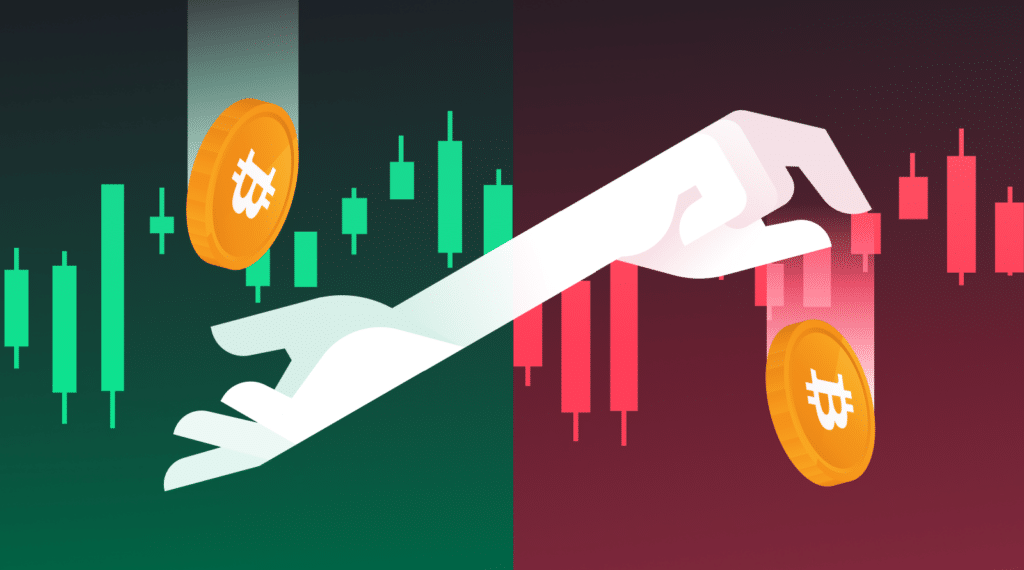
What Is Arbitrage?
Arbitrage trading is the simultaneous purchase and sale of a single asset or a group of related assets in various markets with the goal of making a profit from minute variations in the asset’s quoted price. It takes advantage of brief fluctuations in the cost of identical or comparable financial products on various markets or in various forms.
Arbitrage exists as a result of market inefficiencies, and it both exploits those inefficiencies and resolves them.
Understanding Arbitrage
Any time a stock, commodity, or piece of currency can be bought at one price on one market and simultaneously sold at a higher price on another, arbitrage can be used. The circumstance offers the trader the chance to profit without taking any risks.
Arbitrage offers a way to make sure that prices don’t diverge significantly from fair value over an extended period of time. With advancements in technology, it has become extremely difficult to profit from pricing errors in the market. A lot of traders have automated trading programs configured to track changes in similar financial instruments. Any ineffective pricing structures are typically addressed quickly, often within a few seconds, and the opportunity is lost.

Examples of Arbitrage
As a simple illustration of arbitrage, think of the following: on cryptocurrency exchange A, token X is currently trading at $20; on cryptocurrency exchange B, it is currently trading at $20.05.
A trader can buy token X on cryptocurrency exchange A and immediately sell the same token X on cryptocurrency exchange B to make a profit of 5 cents per coin.
The trader can continue to use this arbitrage until cryptocurrency exchange A runs out of this token or until exchange A or exchange B specialists adjust their prices to eliminate the opportunity.
A More Complicated Arbitrage Example
A trickier example can be found in currencies markets using triangular arbitrage. In this case, the trader converts one currency to another, converts that second currency to a third bank, and finally converts the third currency back to the original currency.
Assume you are given the following exchange rates for your $1 million: USD/EUR = 1.1586, EUR/GBP = 1.4600, and USD/GBP = 1.6939.
There is a chance to make money by arbitraging these exchange rates:
- Sell dollars to buy euros: $1 million ÷ 1.1586 = €863,110
- Sell euros for pounds: €863,100 ÷ 1.4600 = £591,171
- Sell pounds for dollars: £591,171 × 1.6939 = $1,001,384
- Subtract the initial investment from the final amount: $1,001,384 – $1,000,000 = $1,384
From these transactions, you would receive an arbitrage profit of $1,384

How Does Arbitrage Work?
Trading called “arbitrage” takes advantage of the minute price differences between identical or similar assets in two or more markets. The arbitrage trader buys the asset in one market and sells it in the other market at the same time to pocket the difference between the two prices. The following is a list of some of the most common questions we get asked about our services.
Arbitrage traders, or arbitrageurs, typically work for major financial institutions. It typically entails trading a sizeable sum of money, and the split-second opportunities it presents can only be recognized and taken advantage of with extremely sophisticated software.
What Are Some Examples of Arbitrage?
The practice of buying and selling shares of stocks, commodities, cryptocurrencies, or currencies on various markets in order to take advantage of the inevitable fluctuations in their prices from minute to minute is known as arbitrage.
However, the term “arbitrage” is also sometimes used to describe other trading activities.
One tactic that is well-liked among hedge fund investors is merger arbitrage, which entails purchasing shares of companies prior to a merger that has been announced or is anticipated.
Why Is Arbitrage Important?
Arbitrage traders improve the efficiency of financial markets by working to increase their profits. As they buy and sell, the price difference between identical or similar assets narrows. Assets with a lower price are sold, while assets with a higher price are not sold. In this way, arbitrage eliminates market pricing inefficiencies and increases market liquidity.







